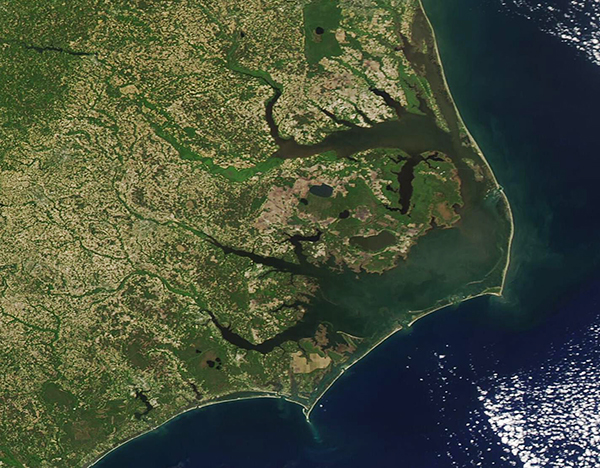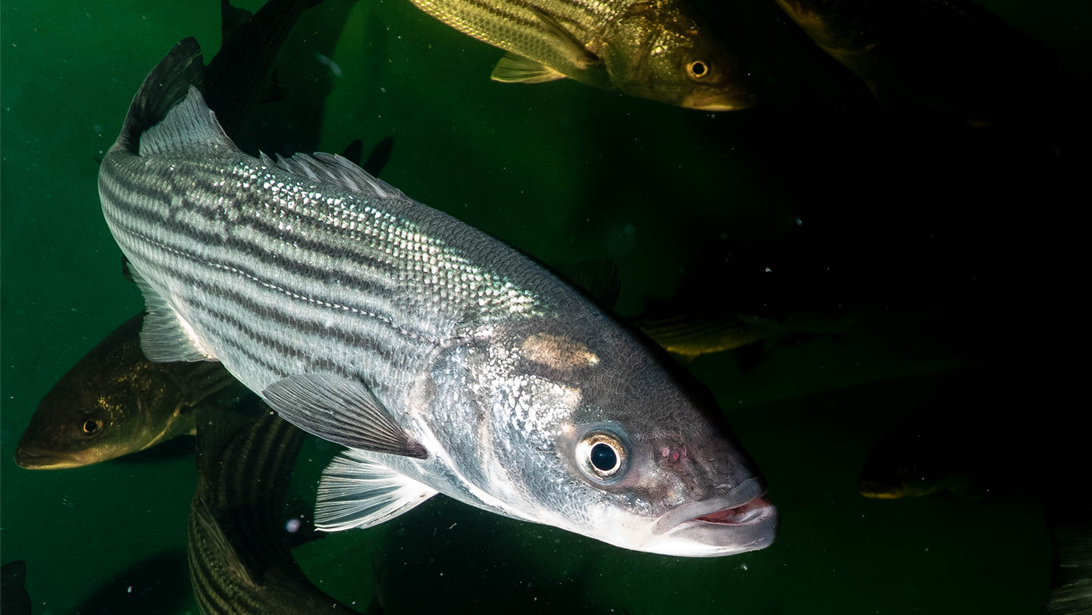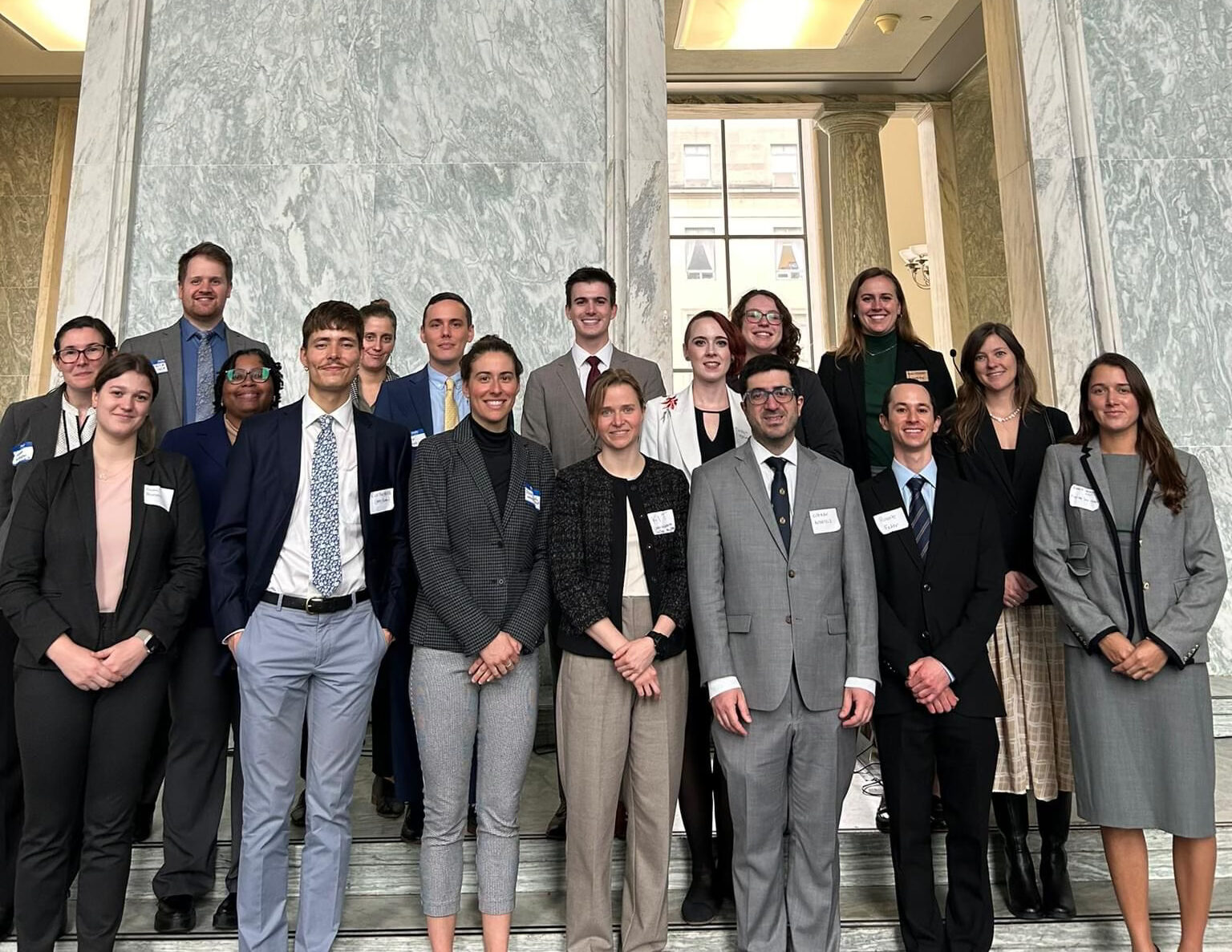UNCW Student Team Wins Coastal Resilience Team Competition Funding

FOR IMMEDIATE RELEASE
Contact: Aman Kohli, akkohli@ncsu.edu
Students from the University of North Carolina Wilmington are winners of North Carolina Sea Grant’s Resilience Team Competition funding. This award provides up to $20,000 to conduct a two-year project that will lead to more resilient habitats and communities on North Carolina’s coastal plain.
Master’s student Céilidh Christie will be joined by undergraduate student Mazzy Morrison under the direction of Lori Sutter and Bradley Tolar to investigate the consequences of tidal freshwater forest wetlands becoming ghost forests along the Cape Fear River. All four represent UNCW’s Department of Biology and Marine Biology, and both students are part of Tolar’s Lab.
“Wetlands serve many essential ecosystem services, including carbon sequestration and storage,” says Christie. “The accumulation of carbon is a key feature of their resilience, because it allows the marsh to adjust its elevation relative to local water levels.”
But changing conditions can push these wetlands to release greenhouse gases like carbon dioxide and methane, compromising their ability to store carbon. Saltwater intrusion can also transform these wetlands into ghost forests, meaning they further lose vital ecosystem services.
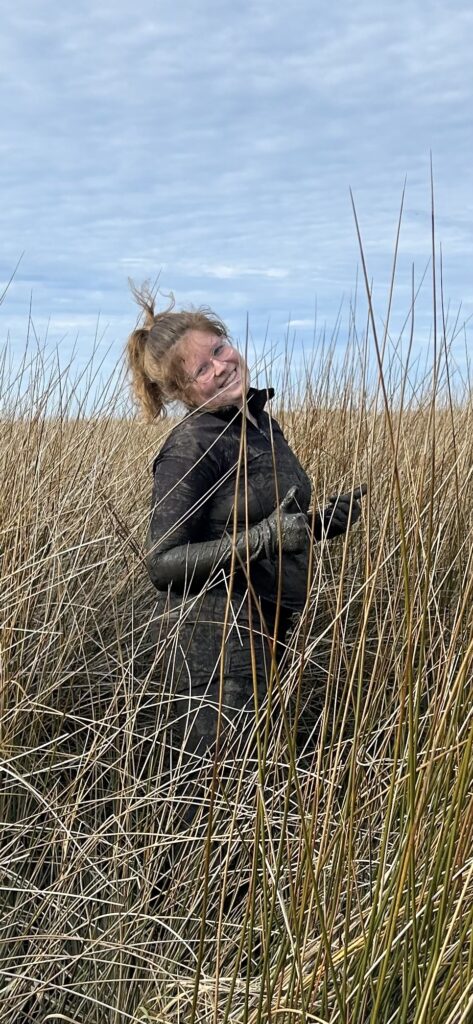
To investigate the transition from a tidal freshwater forest to a ghost forest, the team will sample nine sites in the Cape Fear and Northeast Cape Fear Rivers. One of the sites is an active ghost forest, with others expected to transition into ghost forests in the near future.
John Fear, North Carolina Sea Grant’s deputy director, says changes in these coastal ecosystems have implications for overall ecosystem resilience in coastal NC.
“Understanding how our coastal systems are responding to various forces is critical to creating practical solutions and ensuring the best management options are utilized,” Fear says.
The outcomes of this project will serve to educate and raise awareness about ghost forests and carbon cycling. This includes working with K-12 students through MarineQuest, UNCW’s K-12 outreach program focused on introducing local students to marine science in local areas, as well as potential educational content for the NC Aquarium at Fort Fisher.
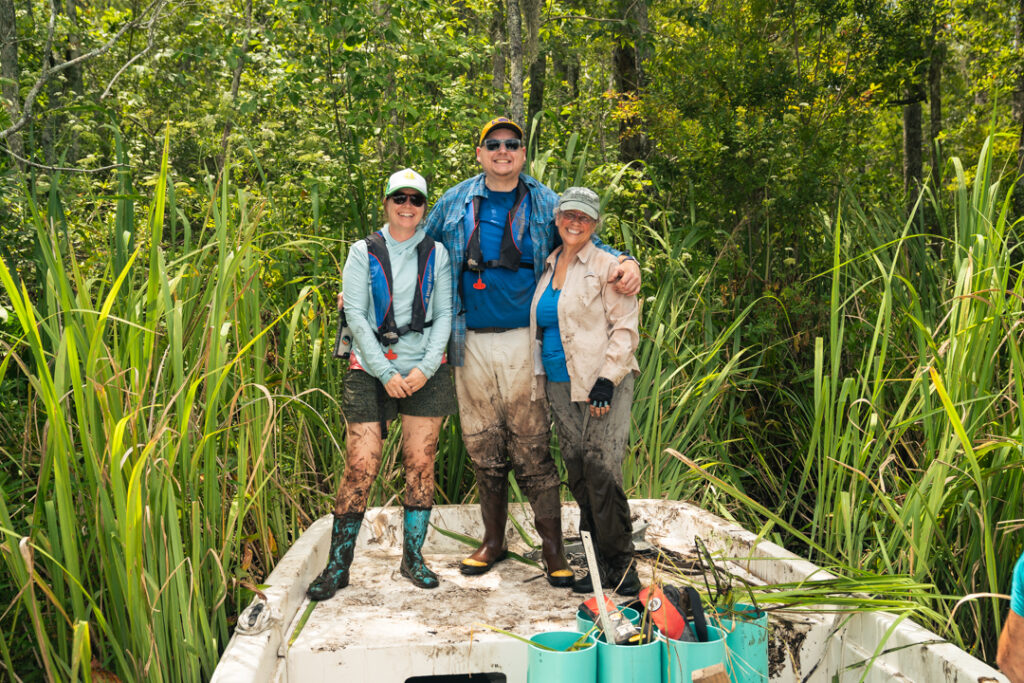
“For the public who may have difficulty conceptualizing the impacts of environmental change, ghost forests offer a visually stark example of how sea-level rise is impacting these freshwater wetlands in coastal North Carolina,” says Christie, who serves as lead on the student team. “My project lends itself well to educating the public and bringing awareness to how coastal NC faces challenges in ecosystem resilience.”
Learn more about the Resilience Team Competition.
- Categories:
